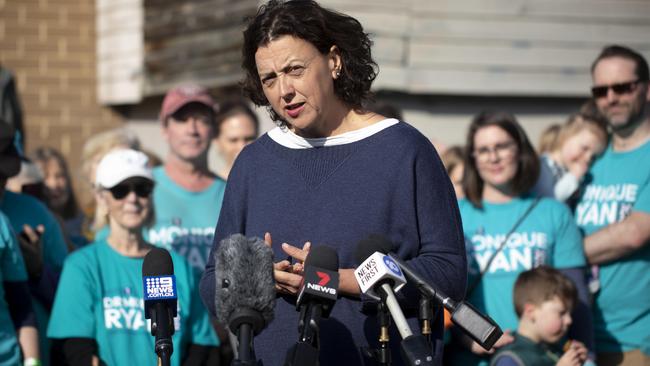
An Anthony Albanese Labor government faces many political, economic and strategic challenges but they will all be more easily navigated with an ALP majority rather than having to rely on Greens or teal independents for survival. Albanese and his team deserve congratulations and plaudits for reclaiming government, to be sure, but the reality is they come to power not only with a narrow agenda but a fragile mandate.
If they deliver the steadfastness they pledged on economic management, national security and border protection they will have a strong foundation. And, while their past performance on these issues does not inspire confidence, we must give them time to prove themselves.
We know it is rare and difficult to win your way into government from opposition – but to do it while shrinking your primary vote is a new trick. If we put Western Australia to one side (because of its unusual pandemic politics), the slide in Labor’s primary vote across the rest of the country is alarming for the labour movement.
The Coalition’s dive was much more dramatic and will trigger bitter and necessary reassessments from the ruins of opposition. That it will do this without its deputy leader and prime minister-in-waiting, Josh Frydenberg, makes this all the more debilitating.
While public opinion polls pointed to a Labor win, no one predicted this outcome – Labor’s primary vote going backwards to victory. The polls, implausibly, had the Labor and Coalition primary votes closely aligned, even after Albanese’s accident-prone campaign.
The most likely explanation, based on past elections, was that they were underestimating the Coalition primary, but this time they overestimated Labor’s. Now, just 15 years after we had each major party snaring more than 40 per cent of the primary vote, and the minor parties squabbling over about 15 per cent, we have the nation divided roughly in thirds between Labor, the Coalition and the minors.
This could rebound in the future, even at the next election, or it could become a permanent characteristic of our body politic, leading to more minority and coalition-style governments in the European tradition. In other words, we might have witnessed a watershed moment in what has been our two-party system.
The unpredictability of pandemic politics must have figured prominently in this election, although the dynamics in different states and demographics will not be easy to decipher. Undoubtedly, frustrations with political, medical and economic responses contributed to the itchy-scratchy nature of public debate.
But central to the Coalition’s problem is a lack of conviction. What does it see as the path forward on energy security and climate change? What is its plan on reforming education and tackling the woke agenda of our universities? How, precisely, will it ensure more women represent its parties in national parliament? How will it combat inflation and reclaim the mantle of fiscal rectitude?
After winning in 2019 the Coalition sought to eliminate arguments rather than take them on. Conceding your opponent’s positions can only ever work if your opponents are right; and if your opponents are wrong you need to debate rather than seek to mollify them.
The Coalition has lost at least five seats to fake independents, clearly acting as a party, who effectively argued that, somehow, they could alter the nation’s climate and limit our suffering from natural disasters. The proposition is an absurdity but what is even more preposterous is that the Liberal Party never challenged it; rather, it suggested it was already on the case.
This is the absence of reason in our political debate. Like graffiti vandals, the fake independents offer only an identity and a protest, not practical solutions – teal is just another shade of green.
That Australia needs to do its share of the lifting when it comes to reducing global emissions is incontestable, but what passes for debate has been emotive posturing and fantasy. Maybe, after this weekend, we will have the logical debate about climate and energy options that we have avoided for 20 years.
The inability to conduct constructive debate in the digital media age is a dilemma confounding all liberal democracies. Instead of enlightenment, the information age is fostering fragmentation and invective.
Without energy security, water security, economic security, border security and national security, this country will not have much of a future. The gravity of the task demands that a repudiated Coalition organises itself to provoke debate and generate ideas.
Chris Kenny hosts The Kenny Report on Sky News.







What an extraordinary election result, one that not only changes government but makes both major parties weaker and alters the political dynamic of the country, perhaps permanently. Labor forms government, of that we are certain, but much hinges on whether it can cement a majority.